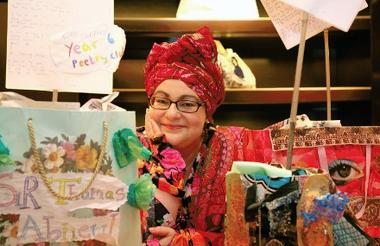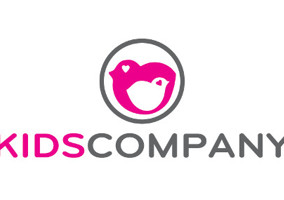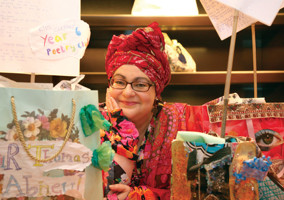More than five years after Kids Company imploded dramatically and very publicly, a judge has ruled that its trustees were not guilty of running an unsustainable business and were not unfit to be running a charity.
On Friday, Mrs Justice Falk went so far as to praise their commitment and endorse them as upstanding potential trustees for other charities. “Most charities would, I would think, be delighted to have available to them individuals with the abilities and experience that the trustees in this case possess,” she concluded.
She also ruled that Camila Batmanghelidjh, the charity’s founder and chief executive, was not a de facto director.
For charities and trustees this is seemingly good news, and the idea that the Insolvency Service might take a more active role in charity insolvencies appears to be in retreat.
The ruling was immediately hailed as a victory for the sector. Bates Wells, the law firm which acted for most of the trustees, triumphantly declared: “Even though they knew right was on their side, it took great courage to defend proceedings on this scale, pitted against the unlimited resources of the state and exposed to immense financial risk in the case of a loss.
“That courage has benefited the whole charity sector as the defendants’ total vindication sends a clear message to trustees that they will continue to receive the protection of the court when making honest and reasonable judgments under difficult circumstances.”
Batmanghelidjh was similarly pleased to have won the case. Speaking to Channel 4 News on Friday, she maintained that it was a “smear campaign” that had led to the charity’s failure.
“I am so happy that Kids Company and its trustees were cleared of any wrongdoing,” she said.
She added that former staff and donors now “know their trust was well placed in the organisation”.
However, there are sadly no real winners here. It has been a long a difficult process for everyone involved. What’s more, the ruling itself exposes how poorly charity law is understood.
Breathing a sigh of relief?
Charities feared that had the trustees been disqualified for allowing the charity to operate an “unsustainable business model”, people would be discouraged from stepping forward to be trustees.
Similarly, chief executives might have been worried about the amount of blame they would shoulder should their charity collapse.
So, to an extent, charities are correct to feel a sense of relief at Friday’s ruling. In a thread on Twitter, Daniel Francis, lead governance consultant at NCVO, said: “From a governance perspective, my initial thought is that trustees can take some reassurance: First that if they do their best to comply with their duties, committing their skill and energy to run charity, acting honestly and in good faith, then the law generally protects them against such cases.
“Second, the ruling makes clear that in her capacity as CEO, Batmanghelidjh was not a 'de facto director'. Meaning there are no significant implications for the division of executive and non-executive responsibilities.”
Meanwhile, Caroline Diehl, founder of the Social Founders Network, told Civil Society Voices that there has “definitely been a huge sigh of relief”, adding: “It’s left a positive legacy too, in that charity founders now look more carefully at our own behaviours, management and leadership styles, and also at our own succession planning, and engage in more open discussions with our boards.”
However, she also points to the downside of the whole saga. “Even with the decisions last week, Camila and Kids Company’s negative legacy remains as a ‘brand shadow’ and a warning,” she says.
Furthermore, some observers say it is problematic that the case came to court at all. Rosalind Oakley, chief executive of the Association of Chairs, says: “We are concerned that despite the trustees being cleared, the publicity surrounding this case may still deter people from joining trustee boards or for boards themselves to become excessively risk averse.”
Poor understanding of charity
Falk admonishes the Insolvency Service for its lack of understanding of charities and highlights that Kids Company is far from the only charity to operate on a demand-led basis, allowing people to self-refer for help.
The judgment concludes: “I was struck by the lack of experience that the Official Receiver had had in relation to charities, in particular the failure to give full recognition to the fact that it is common for charities to be heavily dependent on donations, and the apparent difficulties that both Mr Hannon and Mr Tatham had with the concept of wholly non-executive boards of directors.
“I think this affected their approach and, for example, contributed to some inappropriate assumptions being made as to what should have been done by the trustees.”
The judgment then suggests that the Charity Commission would in fact have been better placed to deal with the case. An inquiry by the Commission was put on hold because the Insolvency Service’s work took precedence.
However, for entirely different reasons, Falk also shows herself to lack a deep understanding of charity issues, particularly around reserves.
Could Kids Company have survived?
One of the central questions being considered by the judge was whether or not the charity could have survived if the trustees had acted differently.
She concluded it could not have. She points to the fact that the police investigation into sexual abuse allegations at the charity, which impeded the charity's ability to raise funds, took longer than three months. Therefore, even if the charity had built up three months’ reserves, she says, the funds available would still have been “well short of what was required”.
However, in a way this is an argument that rather than closure being inevitable, any charity working with vulnerable young people that could find itself subject to a safeguarding investigation ought to be holding at least six months' reserves.
Remember that Kids Company was a large charity with an income of around £20m. Such organisations are expected to hold reserves to ensure an orderly closure if they become insolvent.
Many charities do struggle to build reserves due to the nature of restricted funding, but in Kids Company’s case nearly 80% of its income in the years leading up to its closure was “unrestricted”, meaning that money could have been saved for a rainy day and simply wasn't.
The impact of this was that when Kids Company closed in 2015, those young people who relied on it as a safe place were cut off overnight. Television news crews documented the distress felt by young people at the time and it was painful viewing.
Instead, Falk blames the charity’s closure solely on the sexual abuse allegation being investigated by police.
As David Ainsworth, a freelance writer and charity expert, puts it, this “rather downplays the brinksmanship that had clearly been in evidence for years”.
He says: “The charity had been ducking and weaving to stay ahead of the bailiff for years. Just because some people manage to stay ahead of the bailiff for a long time, that doesn’t mean it’s a sustainable model.”
Lessons for the future
It is worth saying that just because the former trustees and chief executive have been exonerated on the question put before the court, that does not mean that earlier conclusions and recommendations from reviews are now null and void.
Indeed, in the wake of Kids Company’s collapse there was a flurry of activity, with parliamentary inquiries and charities themselves seeking to learn the lessons. Government reformed its grants processes, and charities embarked on developing a refreshed governance code.
For Caroline Diehl, Kids Company had been a warning to other charity founders for some time, with the “evolving disaster” prompting people to reflect on their own positions.
“The charismatic, powerful founder brand and leadership practice that Camila manifested had driven rapid growth and profile, but was also increasingly leading to traumatic failure. Traumatic for all involved – for the kids and their parents, carers and social workers, for the Kids Company staff and volunteers, the board and chairman, and clearly for Camila herself,” she explains.
However, she doesn’t believe failure is inevitable. “Now more than ever we need to make the time to analyse what really went wrong at Kids Company, how the positive energies and great skills that Camila had could have been channelled in the right direction, and how the board and chairman could have made this happen more effectively,” she says.
One aspect of the judgment, which sat especially uncomfortably with me was the judge’s apparent dismissal of testimony from former staff about Batmanghelidjh’s leadership style.
Four former senior Kids Company staff gave evidence. The judgment notes that one member of staff “had a perception of having been bullied by Ms Batmanghelidjh, and obviously found her hard to deal with”, but barely scratches the surface of this when it moves on to assessing whether Batmanghelidjh was too dominant.
In several places witnesses describe Batmanghelidjh as “strong”. But Falk concludes that trustees were in fact able to impose their decisions, as evidenced by the fact that the key part of a proposed restructure to remove her as chief executive, and that senior staff could, if they wished, communicate with trustees.
The story is still not over
Friday’s judgment was not the concluding chapter, but just the latest in a sorry saga that has already run into many volumes. There are still the Charity Commission’s findings to come.
As I said at the beginning, there are no winners. Yes, the judgment is a relief for the individuals involved and for the wider sector concerned about discouraging trusteeship, but there is not much to celebrate.
Charities cannot afford to become complacent about the lessons that were learnt from Kids Company’s failure.
Related articles











